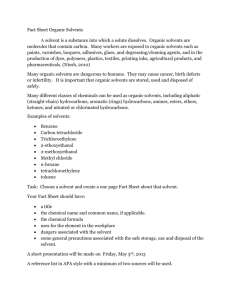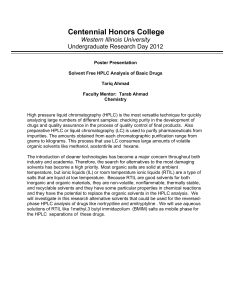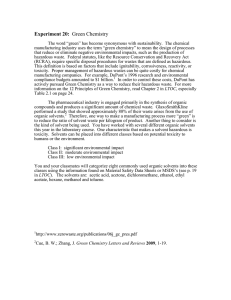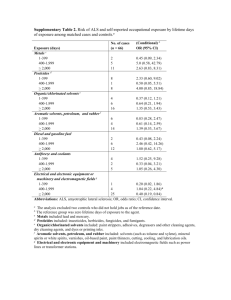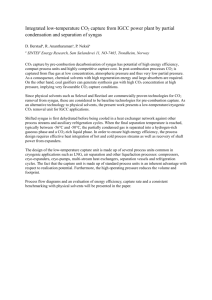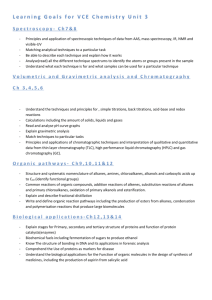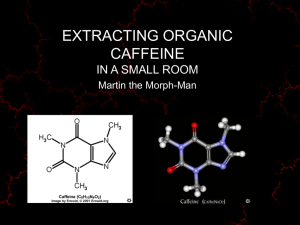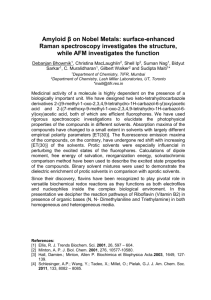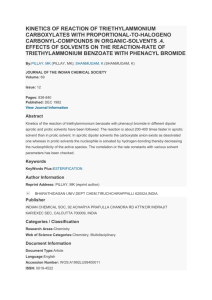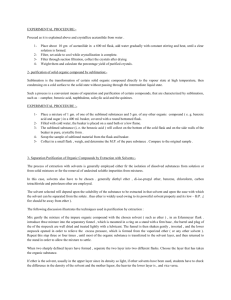Arvind Rajendran Project Synopsis
advertisement
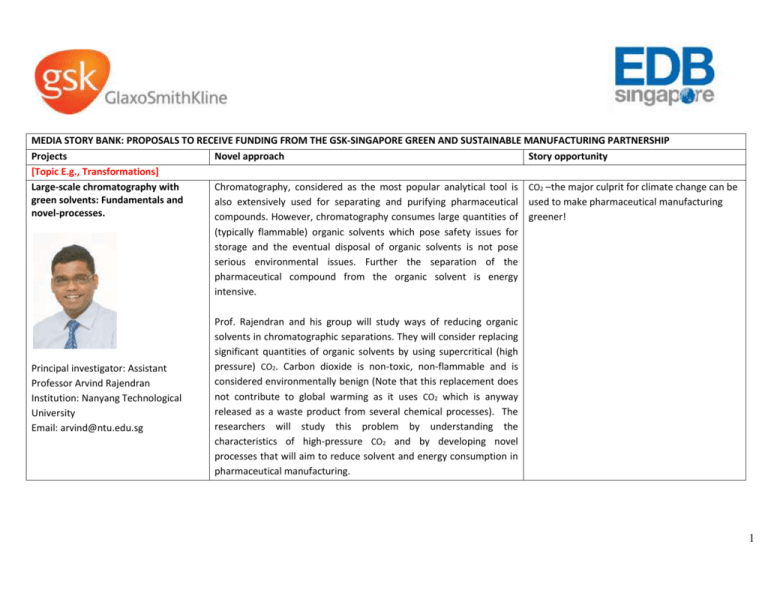
MEDIA STORY BANK: PROPOSALS TO RECEIVE FUNDING FROM THE GSK-SINGAPORE GREEN AND SUSTAINABLE MANUFACTURING PARTNERSHIP Projects Novel approach Story opportunity [Topic E.g., Transformations] Large-scale chromatography with Chromatography, considered as the most popular analytical tool is CO2 –the major culprit for climate change can be green solvents: Fundamentals and also extensively used for separating and purifying pharmaceutical used to make pharmaceutical manufacturing novel-processes. compounds. However, chromatography consumes large quantities of greener! (typically flammable) organic solvents which pose safety issues for storage and the eventual disposal of organic solvents is not pose serious environmental issues. Further the separation of the pharmaceutical compound from the organic solvent is energy intensive. Principal investigator: Assistant Professor Arvind Rajendran Institution: Nanyang Technological University Email: arvind@ntu.edu.sg Prof. Rajendran and his group will study ways of reducing organic solvents in chromatographic separations. They will consider replacing significant quantities of organic solvents by using supercritical (high pressure) CO2. Carbon dioxide is non-toxic, non-flammable and is considered environmentally benign (Note that this replacement does not contribute to global warming as it uses CO2 which is anyway released as a waste product from several chemical processes). The researchers will study this problem by understanding the characteristics of high-pressure CO2 and by developing novel processes that will aim to reduce solvent and energy consumption in pharmaceutical manufacturing. 1
